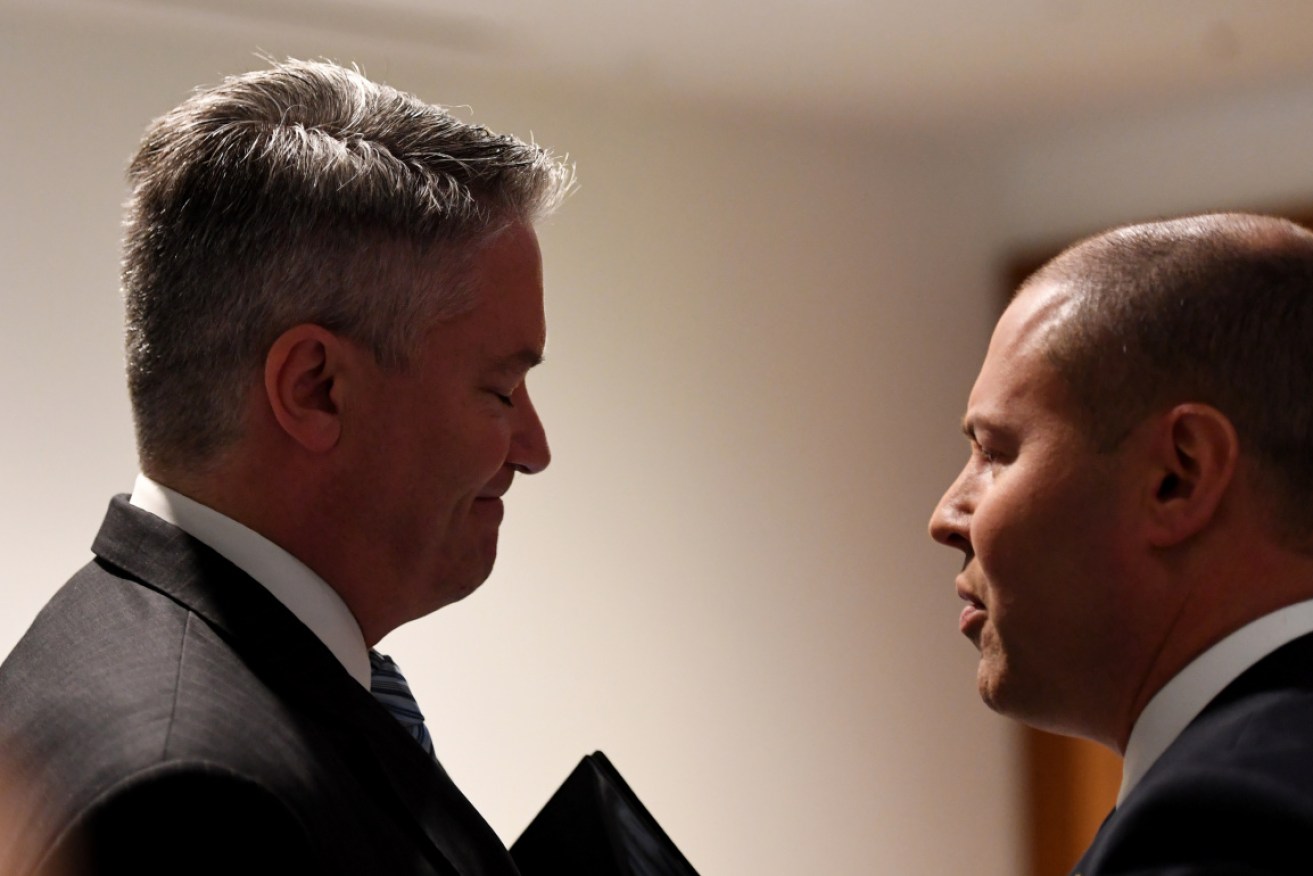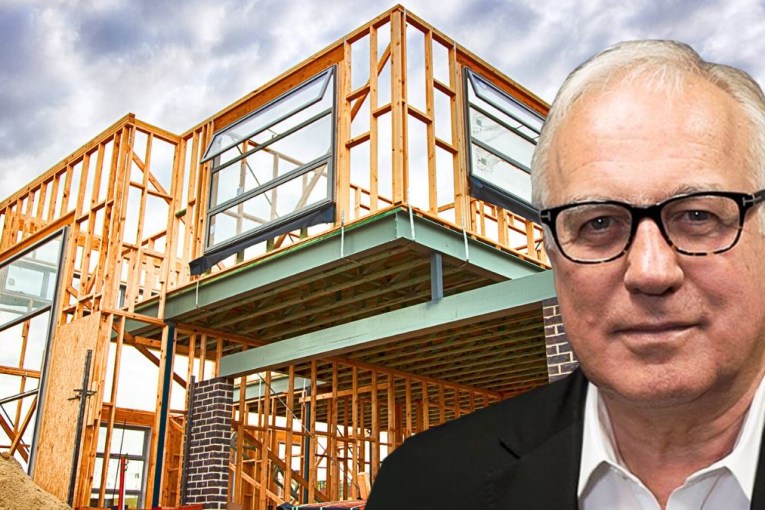Budget 2019: ‘Who do you trust?’ strategy may backfire, Samantha Maiden writes


Asking millions of voters to trust the federal government will follow through on major tax cuts has been labelled a risky move. Photo: Getty
Scott Morrison is rolling the dice on a big gamble by holding tax cuts for 10 million Australians to ransom as he fights the election.
He could have tried to legislate them before the election but he’s chosen not to try, insisting this election will be fought on “trust”.
It is risky. But the lines the Prime Minister and his Treasurer Josh Frydenberg are stealing to run the strategy are not original.
They are ripped straight from the playbook of John Howard.
It was Mr Howard who declared the 2004 election and his fight with Mark Latham would be all about trust.
“This election, ladies and gentlemen, will be about trust,” he said on the day he called the election in October, 15 years ago.
“We will ask the Australian people: ‘Who do you trust to deliver lower taxes?’,” Mr Frydenberg said on Tuesday.
It could prove to be a big call. The simple truth is the treasurer could have legislated these tax cuts this week.
Labor had signalled it was prepared to support the tax cuts in Parliament, ensuring they could be L-A-W before the election was even called.
That would give workers certainty they could expect a $1080 windfall from July 1, when they lodge their tax returns.
But it would rob Mr Morrison of a fight during an election campaign.
Instead, the government won’t even try to legislate the tax cuts, with Finance Minister Mathias Cormann declaring they weren’t prepared to “haggle with the Senate”.
Really? Is anyone really going to pretend the winner of the next election, whether it is Scott Morrison or Bill Shorten will not be forced to haggle with the Senate? It’s called democracy.
The truth is the PM did not want to hand Mr Shorten the opportunity to neutralise the tax cuts for workers earning less than $130,000 as a political issue.
Senator Cormann is insisting the tax cuts are “a package” and it’s not clear that Labor would support the change in the 32.5 per cent tax rate to 30 per cent.
“We’re just not prepared to haggle with the Senate in the remaining 24 hours in relation to comprehensive tax reform,’’ he explained.
That comment prompted collective eyebrows to rise – was he suggesting that the PM could go to an election before Mr Shorten’s budget-in-reply speech on Thursday?
Regardless, it is clear the Prime Minister will go to the Governor-General and call an election soon, likely by this weekend.
All you need to know about #Budget2019 in just over 60 seconds #BuildingOurEconomy pic.twitter.com/Sk9WcvNl4B
— Scott Morrison (@ScoMo30) April 2, 2019
The suggestion the changes to the 32.5 per cent rate are “a package” also rings a little hollow, because those changes are not slated until 2024.
It’s workers earning less than $130,000 a year who are left in limbo not knowing if they will secure a $530 tax cut or a $1080 tax return if Parliament legislated the changes now. It’s all about the election.
“We believe that it has got to be up to the Australian people to decide whether to back us to provide tax relief,’’ Senator Cormann explained.
Don’t forget the tax cuts that Mr Frydenberg announced on election night are designed to match Labor’s original tax cuts that have been in place for nearly a year.
Labor announced during its budget-in-reply speech that it would outbid the Coalition on tax cuts for battlers offering up to $928 a year.
By announcing tax cuts of $1080 on the eve of an election, the government is outbidding Labor by $160.
Don’t expect that to last long – Labor will match it.
The government also confirmed a forecast budget surplus of $7.1 billion in 2019-20. But by that financial year, Australia could have a new government.
It also remains an economic forecast only, vulnerable to international headwinds.
Remember, the $20 billion budget surplus Wayne Swan announced in 2008 was cactus by the next year when the global financial crisis hit and delivered a budget deficit.
‘Who do you trust?’ is not the only line Mr Frydenberg is stealing from the Howard era.
The budget speech, as expected, also invoked ACDC’s Back In Black chorus, just as Peter Costello did when he first declared a budget surplus.

Former treasurer Peter Costello delivered the line, ‘We are back in the black’, as he announced the Coalition’s budget in 2007. Photo: Getty
“The budget is back in black and Australia is back on track,’’ Mr Frydenberg said.
The line is stolen, almost word for word from Mr Costello’s budget speech. It’s a good line.
The only problem with all this nostalgia is that Mr Frydenberg is not Mr Costello. Mr Morrison is not Mr Howard.
This budget is not just a campaign document – it’s an alibi if the economy goes bad. The Liberals can insist they left the budget in good shape.
And the danger for the Prime Minister remains that when voters are asked, ‘Who do you trust?’ to relieve cost-of-living pressures, they will vote for Labor.








